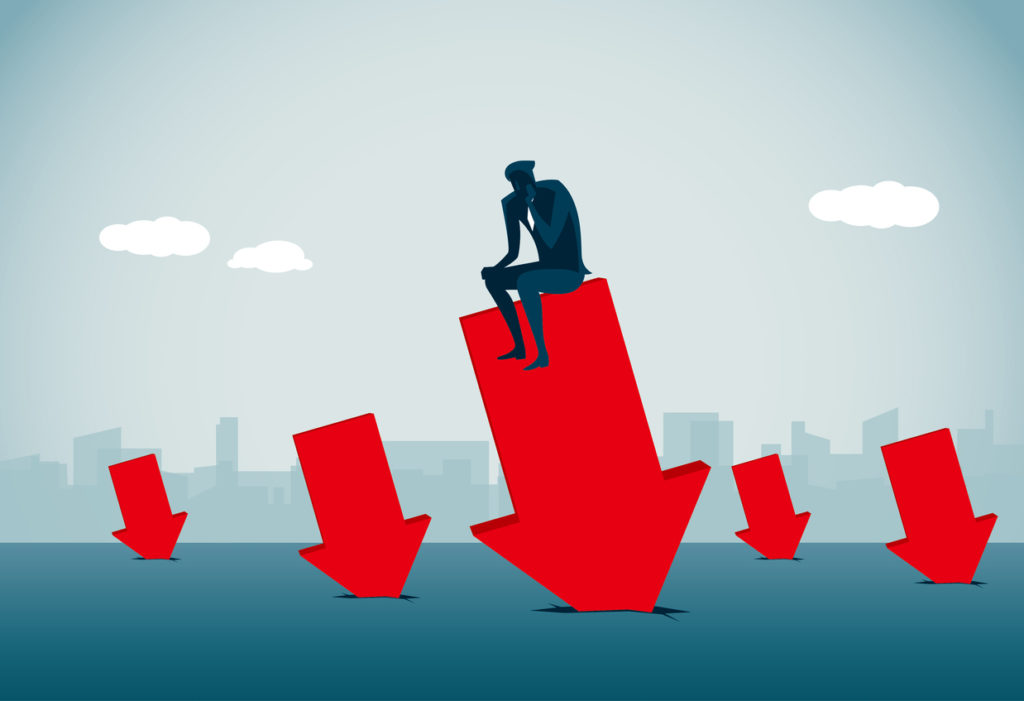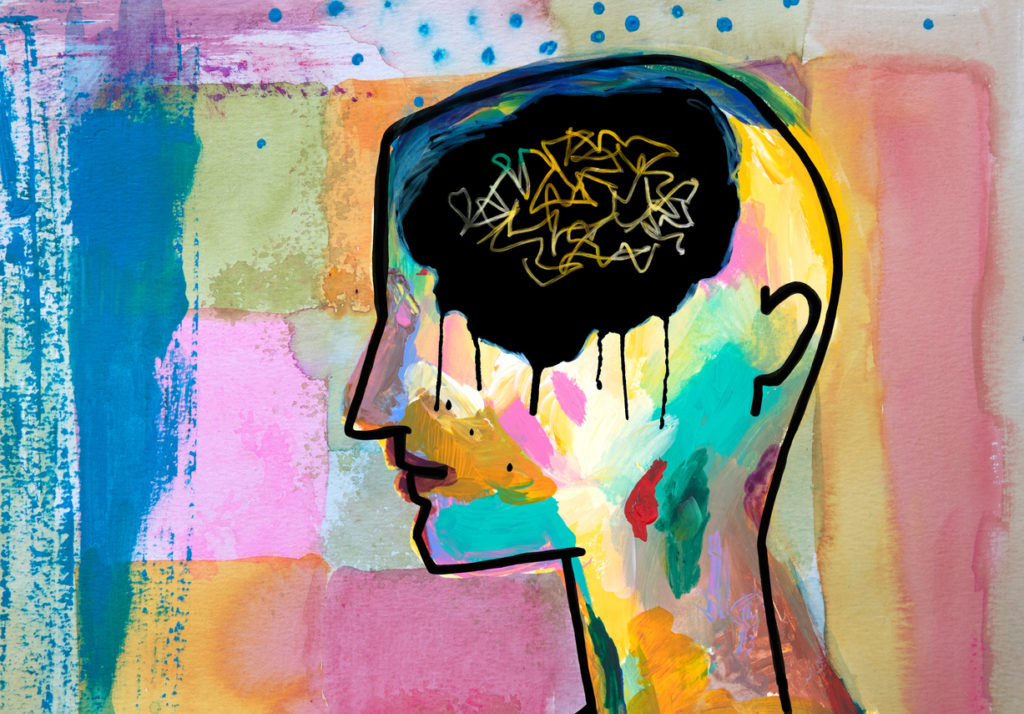Depression is a common experience, with one in seven Australians experiencing depression in their lifetime. We go through a series of events that affect our mood and the way we perceive things. These experiences can sometimes have a negative impact. Or, we might even feel a little blue for no apparent reason at times.
Genetic predisposition, biological and psychological factors can might play a role in depression, but the exact root cause of depression is still unidentified. Normally, it is also due to stress (low or high grade), in combination with all the other elements.
Depression can take several forms and it has different types. Different elements cause different types of depression. For example, environmental and biological factors are involved in causing psychotic or melancholic depression, whereas, a depression that is not melancholic may be caused due to distressing experiences or events.
Researchers have been able to find out some primary causes of depression which are stated below:
Biochemical factors
Neurotransmitters are chemical messengers in the brain, through which nerve cells in the brain communicate with one another. Our brain consists of several neurotransmitters and each one has its own task to perform.
The three main ones that play an important role in impacting the way a person feels are dopamine, serotonin, and noradrenaline. Researchers believe that in cases of clinical depression, the neurotransmitters responsible for regulating the mood are not able to function properly. This means that the signals they carry from one part of the brain to the next are disrupted, thus causing issues.
Physical illness may also result in depression as it causes us to feel uneasy and thus affects our mood. When people suffer a physical illness, they naturally feel shallow and the thought that they are not able to carry out simple tasks drains their mental energy. Illnesses can also impact the overall performance of our body, leading to depression. An example is some types of cancers, where a person might become vulnerable to depression without even realising it.
The ageing brain
The functioning of the neurotransmitters is greatly affected as a person grows old, which may result in mood shifts. Depression in later life is often not diagnosed, and thus treated inadequately. Many elderly people experience depression for the first time while having dementia. It is of a psychotic or melancholic type, and is due to the distortion in brain circuitry that connects the basal ganglia and parts of the front brain.
People who are at loss due to the natural mini-strokes or high blood pressure that may occur at old age may also have this as a contributory factor.
Psychological and environmental stressors
Everyone copes with stress differently; some people get better on their own within days, while for others persevering stress can evolve to depression. The stress can lower self-esteem and also induce feelings of shame.
Certain other factors like being abused in childhood might cause depression later on in life. Regrets and not feeling accomplished enough can also cause a person to experience depression, as well as losing a loved one or separation.
Personality
It has been identified through research that people comprising certain personality traits are more vulnerable to depression than others, especially the non-melancholic type. These are:
- People who are shy or avoid social contact
- constantly worry inside or get frustrated easily
- are overly sensitive
- have a habit of constantly criticising themselves
Constantly focusing on your goals and self-growth can be distressing at times as well. Being over-passionate about achieving unreal levels of indefectibility can be harmful.
Symptoms of depression
Sometimes people may have brief episodes of depression and are able to get back into the normal flow of life again. But others with serious cases are unable to do that. If you observe that your depression is impacting your social, personal, and professional life, then do not hesitate to see a therapist as soon as possible.
People with depression show several symptoms such as having negative thoughts about themselves, sleep problems, weight or appetite issues. They may also feel more than “just low”, and are unable to focus or face retention problems.
People with depression also feel more constantly pessimistic, frustrated, anxious, lack interest, and are not driven towards goals. They also go through a variety of emotions throughout the day, feeling worst in the day and better as they progress toward the rest of the day.
It is essential to understand that depression is constant; if you feel low sometimes then that doesn’t count as depression. It is recommended to see a doctor if you feel depressed for 2 or more weeks. People with severe symptoms often feel like giving up their life. If the thought occurs then seek medical help as soon as possible.
Types of depression
There are various types of depression which can affect the mental health of a person differently. Some depressive disorders have serious symptoms, while some have relatively mild symptoms. Understanding these types will further help in the diagnosis of depression and its treatment.
Major depression
It is sometimes known as clinical depression, unipolar depression depressive disorder, or only depression. It alters the mood, causing it to be gloomy most of the time and also results in other symptoms such as low interest in day-to-day activities. These symptoms stay for at least 2 weeks and can be experienced frequently.
A person who is depressed usually has a poor personal and social life. In addition to that, they will not be able to perform at work as well. It can be high-grade (serious depression) like melancholic or psychotic, or low-grade (mild depression) such as non-melancholic.
Melancholia
The term applies to a very severe form of depression which is associated with various physical symptoms as well. People with melancholic depression tend to lack pleasure and interest in pretty much everything. Sometimes, they are completely disinterested and have no idea what to do with their life. Their depression is quite evident as they start to move rather slowly.
Psychotic depression
A person with this form of depression experiences psychotic symptoms in addition to sorrow and hopelessness. They often have sensory experiences or hallucinations that are not real. It also causes a person to believe in all the negative things about themselves, causing disruptive behaviour. Oftentimes, they will also believe that the world is against them and that somebody is constantly watching or following them. A toxic paranoia sets in and must be treated by a professional.
Antenatal and postnatal depression
Depression is more prevalent in women during the antenatal (or prenatal), and postnatal (following childbirth) periods. There is a term for the period that covers pregnancy and the time till the baby is one year old, known as the perinatal period.
Many factors incorporate and cause this type of depression. The type of condition that is experienced by almost 80% of women right after birth, when a woman is undergoing hormonal changes. She can experience stress or sadness while recovering from pregnancy, but this is not usually a form of depression as it is temporary and goes away with time.
In contrast to that, depression stays for a long time. It not only affects the development process of the child, but can also affect her relationship with her partner and other family members.
Signs of depression in older people
It is common to have depression at an older age. A lot of factors contribute to depression and diagnosing it can be more complicated in older people than in younger ones as they experience the symptoms differently. Their depression is often untreated as it is may be under-reported.
Their symptoms can also go unnoticed when they are incorrectly associated with things like weakness, dementia, or old age. Common symptoms like lack of interest, sleep deprivation, suicidal thoughts, grumpiness, anxiousness, and chronic pain, are often misinterpreted by people around them.
Where to seek help for depression: Start by talking to your GP
A general practitioner is proficient in dealing with depressive orders. He/she will listen to you, get to know your medical history and recommend different treatments or specialists that can deal with the issue in a specialised way. If need be, they will also prescribe medications to treat your depression and suggest ways in which you can make positive changes in your lifestyle.
Some general practitioners are adept in the treatment of mental health issues as they have acquired additional training in the field. It is important that you feel comfortable around your GP and discuss how you feel in detail so that he/she can come up with a relevant medical treatment plan. You can discuss your eligibility for a Medicare rebate involving the treatment of psychological issues.
All content and media on the HealthEngine Blog is created and published online for informational purposes only. It is not intended to be a substitute for professional medical advice and should not be relied on as health or personal advice. Always seek the guidance of your doctor or other qualified health professional with any questions you may have regarding your health or a medical condition. Never disregard the advice of a medical professional, or delay in seeking it because of something you have read on this Website. If you think you may have a medical emergency, call your doctor, go to the nearest hospital emergency department, or call the emergency services immediately.








